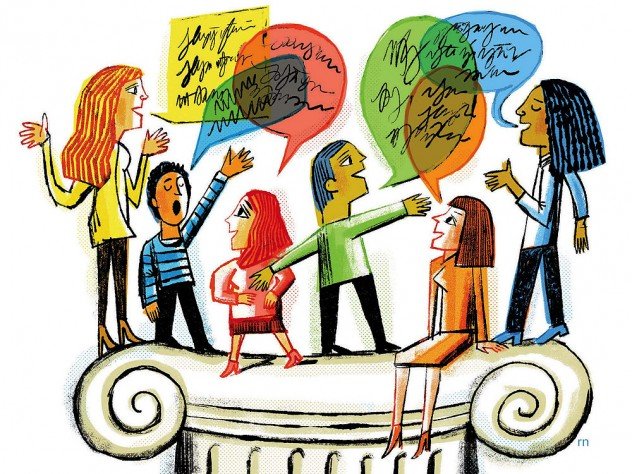Earlier this month, the University of Nottingham announced that it was considering cutting up to 48 courses from its programme, encompassing 15 subject areas. The reason given for this decision was the courses no longer being “financially viable” for the university. A look over the subject areas highlighted for the ban vary widely, from food science to children’s and mental health nursing. It seems like nothing is safe. However, among these courses destined for the chop, one stands out as particularly tragic.
Modern Languages education is a subject area with a particularly raw deal in the UK. I remember primary school French, led by the well-meaning but bizarrely non-francophone Miss Burns. Every two weeks, our gaggle of 10-to-11-year-olds was herded into a glorified storage cabinet beneath the stairs in the maths department and given worksheets matching grainy black and white photos of foodstuffs with their French translation. “Poisson…”, I remember our unfortunate teacher reading aloud, “I guess it’s poison if you don’t cook the fish well enough”. Secondary school, while it offered teachers capable of speaking the languages they taught, brought its own problems. The first three years were particularly ineffective, with teachers spending three-quarters of each lesson persuading the class to remain seated before embarking on the herculean task of getting 30 hyperactive 14-year-olds to grasp the concept of verb conjugations.
Out of a year group of 150 pupils, I was one of three who continued languages to a university level. I (perhaps unwisely) placed my total faith in the system and am now able to speak reasonably fluent Spanish, along with passable German and Arabic. The opportunities I have been offered as a result of my dogged refusal to give up have been numerous, with a year and a half living, studying, and working in North Africa and South America having been invaluable to my personal and professional enrichment. However, I can’t help but mourn the benefits which could be achieved if the UK allowed for more of its children to experience the opportunities which I have been afforded.
This is not where I am going to list my opinions on Brexit. Lord knows that there’s plenty of it going around. The specific relevance of Brexit to this trend, however, stems from the opportunities which are being squandered by those who insist on languages as an afterthought in the British education system. An oft-repeated talking point in the leadup to and aftermath of the fateful referendum was that a UK released from the shackles of free movement and trade obligations would be free to make connections with whomever it liked. “Singapore-on-Thames” became the accepted moniker for a hypothetical UK which, like the alluded-to South Asian City State, would define itself based on being a mediation hub for the great economies of the World around it. However, anyone who promoted such an idea seems to have a very faint idea of how Singapore achieved this unlikely success.
Rather than promoting a nationwide effort to reach out to the diverse parts of the world with which an untethered United Kingdom would be able to make new connections, the realities of Post-Brexit trading seemed to be focussed on our fellow English-speaking nations. Even among those who favour a new global trade alliance, Canzuk (Canada, Australia, UK and New Zealand) seems to be the most popular proposal. As a result of having had an Empire defined by long, ambitious ocean voyages of organised theft, those nations which share our language lie rather far from our reach. Even the United States, which seemed all those years ago to be our failsafe backstop against economic irrelevance, has plummeted in its international esteem as a bastion of global stability and economic prosperity. It seems that by the time we hopped the fence, the greener grass was already dead.
What, then, is to be done? We are sitting on the sidelines of the global stage like a teenager who made no effort before a school dance, alone because he assumed that all the pretty girls would come to him. The lesson of our situation is that if we want to become the World’s free agent we will have to play the field, and the way we do that is speak to the World on its own terms. While the government puts all of its eggs in the basket of Artificial Intelligence and an imagined past of being a titan of global industry, it forgets that a nation is really no more than the sum of its people. By allowing for the population to become more internationally aware and globally mobile, the enrichment of language education would be a step towards the realisation of this potential. If us Brits are good at anything, it’s talking our way out of a sticky situation. Perhaps it’s time to do it in a way that other people can understand.





















